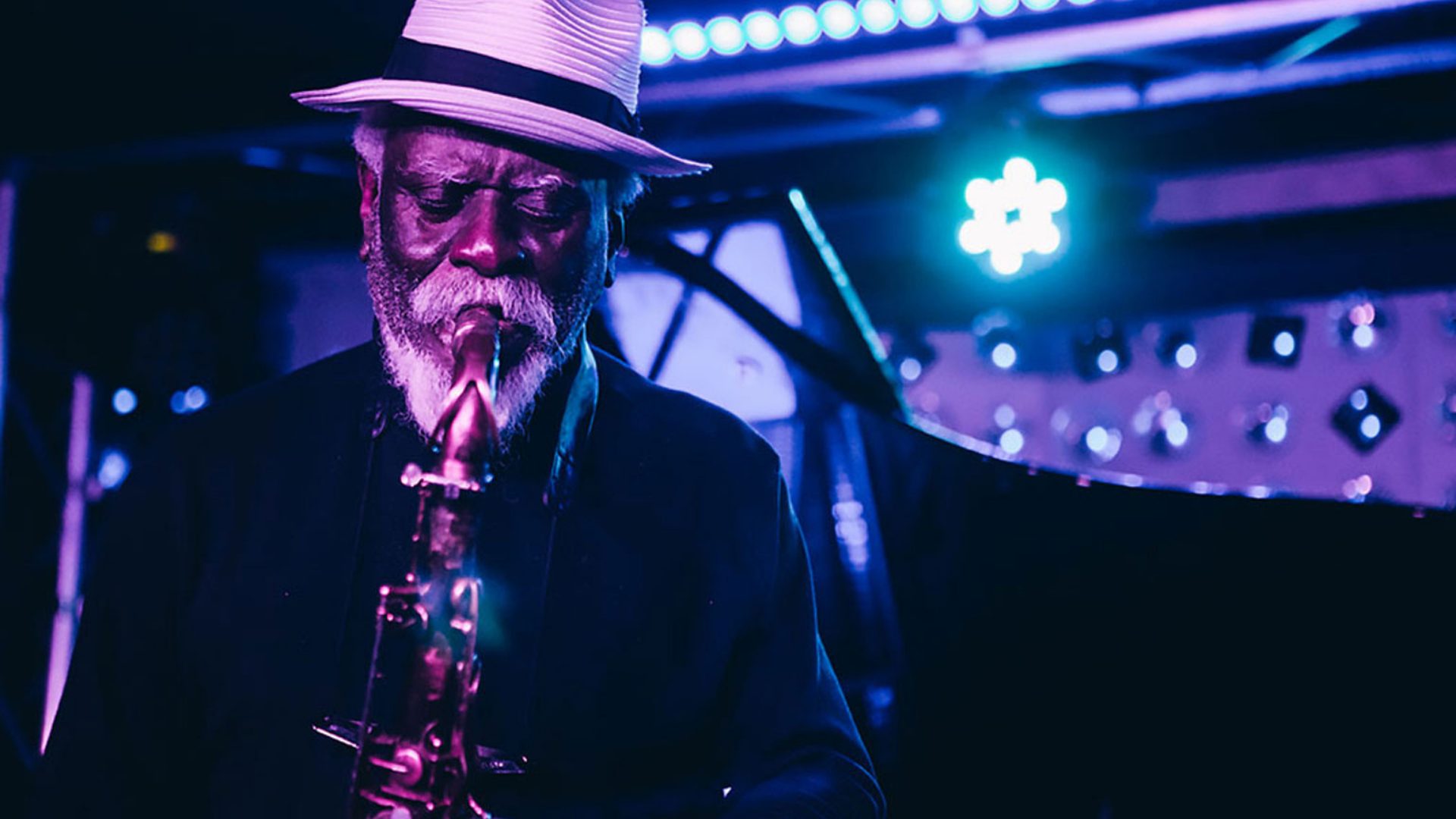Nearly two decades ago I moved to London from my hometown of Dublin in pursuit of a music degree and, ideally, a new identity as a studious and diligent person. Neither of these things were to come easily, and as I attended fewer and fewer lectures and cultivated a lackadaisical approach to handing in coursework, I found myself with a lot of time on my hands. I was bored, under-stimulated, prohibitively broke and incredulous about this unexpected trajectory my reinvention seemed to be taking. Seeking transcendence from this lack of satisfaction, I fell deeply for spiritual jazz.
John Coltrane’s A Love Supreme, credited as the inaugural spiritual jazz album, was my gateway drug. Pharoah Sanders’ celebrated opus The Creator Has a Master Plan [from the 1969 album Karma] came next – a 32-minute track that alternately swoops and plummets between serenity and chaos. While I was failing my degree and was time rich and spiritually depleted I would listen to it compulsively, like a kid rushing to the bottom of the slide and immediately climbing back up the ladder for another go.
In place of listening to music passively on my morning commute as the world flashes by, it feels right to put a record on and let it take me on a cacophonous adventure
I saw Sanders performing at the Love Supreme festival in 2018, the sun melting into the horizon as he glimmered on stage with his horn, playing sparsely and judiciously, a shamanic figure in a sideways baseball cap. It was moving to see and hear him in person – to be in the presence of someone who took care of me so charitably during a difficult time in my life.
The fuzz of the past year has brought that sense of adolescent freefall, uncertainty and boredom back in spades. I have found myself once again seeking comfort and distraction in Sanders’ music, alongside other heavyweights of the genre such as Gary Bartz, Alice Coltrane and Steve Reid. In place of listening to music passively on my morning commute as the world flashes by, it feels right to put a record on and let it take me on a cacophonous adventure. I have nowhere to go – it’s just me, the music and my imagination.
Promises, Pharoah Sanders’ latest album, put together with UK producer Floating Points with accompaniment from the London Symphony Orchestra, arrived serendipitously at the end of March. It is dazzling – a collection of nine movements, at different points subtle and confrontational, moving through various musical ideas, some reappearing, some drifting away. It requires the listener to show up with their curiosity intact and is the closest any of us will have come to a cinematic experience in a very long time. It is already being lauded as a late-career masterpiece for Sanders, and has secured Floating Points’ reputation as a sonic polymath.
Sanders is not the only one seeking out the best and brightest of the UK scene in order to push his music forward. Gary Bartz was introduced to a young London ensemble called Maisha in 2019 by broadcaster and cultural linchpin Gilles Peterson. They played their first gig together at We Out Here festival that year and their collaborative album Night Dreamer was released in 2020 to great acclaim. Bartz has also recorded with recent Jazz FM Digital Award winner Chiminyo, whose unique approach to programming instruments through his drum kit is a testament to his jazz elders who have continuously sought to reinvent the genre.









